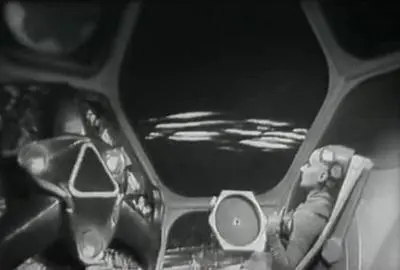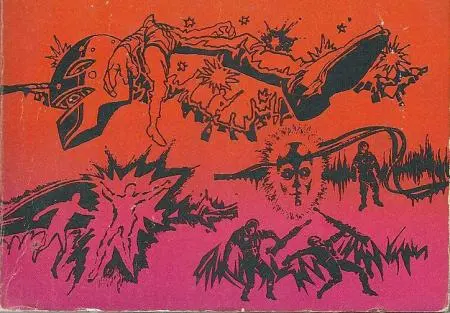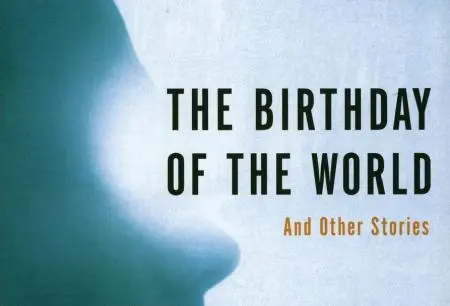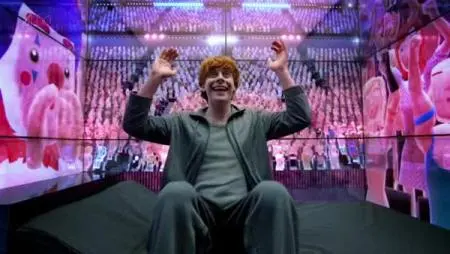Walk into your local book store these days, and dystopian authors like Orwell and Atwood and Huxley and PK Dick are all up in your face—times being what they are. Problem is that with the world about to end, like now, who has time to read a whole novel?
So for those who need to get their global dread on while they can, here are a few of my favorite dystopian tales, short sharp jabs to the heart and mind to remind us to be careful what we wish for—Heaven on Earth is just the B-side to End of Days—and the only chance to create a better world instead of going to hell in a handbasket lies in resisting, with the last of our will, what E.M. Forster calls “the delirium of acquiescence.”
E.M. Forster, “The Machine Stops“ (1909)
When you think of the Science Fiction Hall of Fame, few people think of E.M. Forster (A Passage to India, A Room with a View), but no dystopian tale deserves that accolade more than this chillingly prescient story about Vashti and her grown son, Kuno, who live on opposite sides of the globe in a subterranean matrix where all direct experience is mediated by The Machine. Any attempt to question The Machine—a network of screens, messaging, sharing, and posting complete with tech support (the Mending Apparatus) and a tablet (the Book)—is punishable by Homelessness, another word for being forced to the contaminated surface and left for dead. It is only when Vashti’s son, driven mad by the need to witness for himself the “imponderable bloom” of reality, insists on climbing voluntarily to the surface, that Vashti is faced with a crisis of belief and of the heart, a crisis that she ignores at her peril.

Ray Bradbury, “The Pedestrian“ (1951)
No dystopian list would be complete without a Ray Bradbury tale, and from “Ylla,” to “There Will Come Soft Rains,” it’s an embarrassment of riches. As much as I love all of them, I’m going to settle on “The Pedestrian,” because time is short—it’s a cold dark night in the year 2053 and you’re in the middle of one of your solitary walks past fortressed homes where inhabitants are glued to their screens, when suddenly there’s an unmanned squad car shining its “fierce white cone of light” in your eyes and threatening to shoot you dead for going against the spirit of the age—you’ve got just minutes to finish the story but it’ll stay with you for much longer than that.
Harlan Ellison, ”'Repent Harlequin!' Said the Ticktockman“ (1965)
Another Nebula winner, Ellison’s pyrotechnical yet deeply affecting story hits home on all the levels that matter to me, deadline-allergic being that I am. Set in a glittering future where the Ticktockman makes everything and everyone run on time, and where lateness is punishable by death (ten minutes of life subtracted every ten minutes of lateness, more for every hour—consistent lateness could, and does, result in being turned off at high noon—“please straighten your affairs, sir”), Ellison’s tale devolves into a nightmare of Orwellian proportions and for all the same reasons.
As the title suggests, this is a story of surreal horror—Everett C. Marm AKA The Harlequin goes against the hypocritical Ticktockman by, among other things, dropping thousands of dollars worth of jelly beans from his airship, and parading around the Efficiency Shopping Center in fancy pants and lipstick urging everyone not to be “slaves of time, it’s a helluva way to die, slowly, by degrees… down with the Ticktockman!”
Needless to say, these time-killing hijinks do not end well.
Joanna Russ, “When it Changed“ (1972)
This one blew them out of the water when it was first published, earning a Nebula, a Hugo nod, and later, a retrospective James Tiptoe Jr Award. What I love about this story, aside from its feminism, is its reminder that heaven is a bubble, an illusion, and no matter how good things seem to be, hell is always just a shot away. In an all-female colony on a distant world—formed in the wake of a tragic plague that killed off all the men—women have not only learned how to propagate the species through an egg-combining process, but also struggled to adapt, like the protagonist Janet and her wife and their kids, to a whole range of behaviours and personality traits that are neither “male” or “female”– just human.
When male astronauts arrive from earth, the whole thing goes pear-shaped in the most dire way. Everything Janet has struggled for, everyone she loves, is up for grabs, and standing at the threshold to a new era, all she can do is wonder which is worse—the taking of life, or the taking of the meaning of life.

Adam-Troy Castro, “Of a Sweet Slow Dance in the Wake of Temporary Dogs” (2003)
Holy shit. This one will possibly drive you insane. After a slow burn, hell rains down in the most horrific, unspeakable way. For Robert, an accidental tourist in the paradisical Enysbourg, a nightmarish tear in the fabric of “reality” leaves him wondering if nine days in heaven is worth the price of one day in hell—full-metal bombings, torture, tanks rolling over children—and which of the two is the real Enysbourg. His gorgeous lover Caralys reminds him that “a certain silence is just the price of being alive” but is this a price any of us should be willing to pay, just because we can?
Martin Amis, “Janitor on Mars” (1998)
It is 2049. Pop Jones is a janitor in a British orphanage where little Timmy has been raped by the principle. Earth gets a signal from Mars that the lone survivor of its once uncannily earth-like civilization is finally ready to talk—as it happens, this being is a janitor too, of sorts, a robotic construct with the whole history of the universe in its hard drive. Why now? Here’s the thing. The Martian Janitor's instructions are quite specific—it can only make contact with Earth once humanity has damaged the planet to the point of no return, and even if they haven't there's an asteroid the size of Greenland due our way in 2069. That’s right ladies and germs—we’re screwed.
I didn’t really even know I was a Martin Amis fan until I read this collection, Heavy Water. It’s kind of George Saunders meets David Foster Wallace, with an acrid whiff of James Joyce. This story, with its blurring of the big picture—Timmy’s rape—with the small—the end of the world as we know it—changed me forever.
Ursula K. Le Guin, “The Birthday of the World” (2000)
When it comes to Le Guin and dystopian fiction, it’s kind of like Ray Bradbury—open any volume and whatever breaks its spine, there you are.
So I chose “The Birthday of the World,” from the collection of the same name, because it tells the story of a teenage girl, Ze, and her twin brother who are both the children of God and God itself—half male and half female. It’s complicated. Their old brother Omimo is a soldier and returns from a tour of rape and pillage with darkness in his eyes. He proclaims himself the true ruler, exiles his family and sits on the throne in their place, a tyrant propelled to power not through a humane union of ideas, but by ignorance and fear, the desperation of the people to worship a false God rather than none at all.
As Ze leaves the city of her birth, on her birthday, which is also the birthday of the world, she says, “I saw from the back of my head, with the eyes that see what is coming. I saw the misery that was coming to the people. I saw the world dead, but I did not see it being born. What world could be born of a God who was male? Men do not give birth.”
I heart you, UKLG.

Lucy A. Snyder, “Magdala Amygdala“ in 'Soft Apocalypses' (2014)
In 2014 I was teaching dystopian fiction and one of the texts was Atwood’s The Handmaid’s Tale, a difficult read for many of my large cohort of Muslim students, and for many reasons. To get the ball rolling, I asked the class to discuss their idea of dystopia in groups and as I walked around the room, I heard the usual answers—a state ruled by robots, the Zombie apocalypse, parents dead, parents still alive—until I got to one group, where a shy woman in a hijab said that her idea of the worst of all possible worlds was what might happen—what was already happening in terms of attacks on Muslim students, hate-filled headlines, and profiling—right here in Sydney under the conservative government’s enhanced national security laws, labelled with the catchy title, “Team Australia.”
Because that’s the thing with dystopia—the worst possible world is predicated on the “delirium of acquiescence,” on a certain proportion of the populace telling themselves that, tough as the new measures are, they’re for the best until it’s too late to change their mind, until what’s left of their will has already been co-opted by the kleptocratic state they willed to power in the first place.
So Snyder’s apocalyptic tale of a future Earth where a woman wakes up to find her “waking world seems to have been taken apart and put back together so that everything is just slightly off, the geometries of reality deranged,” is a very personal apocalypse for me, but there’s nothing soft about this story at all.
The vehicle of the deranged reality is a monstrous virus. Barely contained by the authorities, the disease is cured only by the ingestion of live human brains—you heard me—without which the victim’s body turns against itself in the worst possible way.
The disease becomes increasingly widespread, increasingly personal. The sick are under a kind of house arrest, forced to ingest an allotment of medications—“cow brains and antioxidant vitamins with the just the barest hint of pureed cadaver white matter… enough to keep your nose from falling off.” Their sex lives are confined to fellow sufferers, their social lives circumscribed by the fear that there is always “a sniper watching from behind the mirror on the wall.”
The ending takes the whole meek-shall-inherit-the-earth thing to a whole new level, putting paid to any remaining doubts about the power of inequality to contaminate us all.

Bonus bite: "Black Mirror" Season 1, Episode 2: “Fifteen Million Merits”
Rewatching the series, I’m once again swept away by the breadth and courage of its vision—I couldn’t decide between this episode and "Nosedive" (S3, Ep1), but there is a rawness and an audacity to “Fifteen Million Merits” that really speaks to me. It’s the future. There is only the screen. The screen is all. Our consumerism fuels the screen (via exercise bikes in a screen-choked gym), and the screen, via a reality talent show called Hot Shots, becomes us. The next time you think how, wow, wouldn’t it be cool to write a screenplay, you know, satirizing The Voice, American Idol, and our whole culture of ersatz celebrity, don’t. Just watch this instead, admit you’re not worthy, and maybe write a poem, or a song lyric, or a novel, and if you’re lucky, if the muse is with you, you’ll come up with a line half as perfect as the one Bing (Daniel Kaluuya) screams at the Judge for taking away the very meaning of life.
“FUCK YOU FOR HAPPENING!”
What are your favorite short works of dystopian fiction?

About the author
J.S. Breukelaar is the Shirley Jackson Award nominated author of Collision: Stories, and a finalist for the Aurealis, Ladies of Horror Fiction (LOHF), and Australian Shadows Awards. Her previous novels are Aletheia (an Aurealis Award nominee), and American Monster (Wonderland Award Finalist). She has published stories, poems and essays in publications such as Black Static, Gamut, Unnerving, Lightspeed, Fantasy Magazine, Lamplight, Juked, and others including Women Writing the Weird, Tiny Nightmares and Years Best Horror and Fantasy, 2019. Her new novel, The Bridge, will be released in early 2021, as well as Turning of the Seasons, a collaborative flash fiction collection with Sebastien Doubinsky. A columnist and regular instructor of Weird Writing at LitReactor.com, she has a PhD in Creative Writing and Film studies and lives in Sydney, Australia where she teaches at the University of Western Sydney, and in the University of Sydney extension programs. You can also find her at www.thelivingsuitcase.com and twitter.com/jsbreukelaar.








